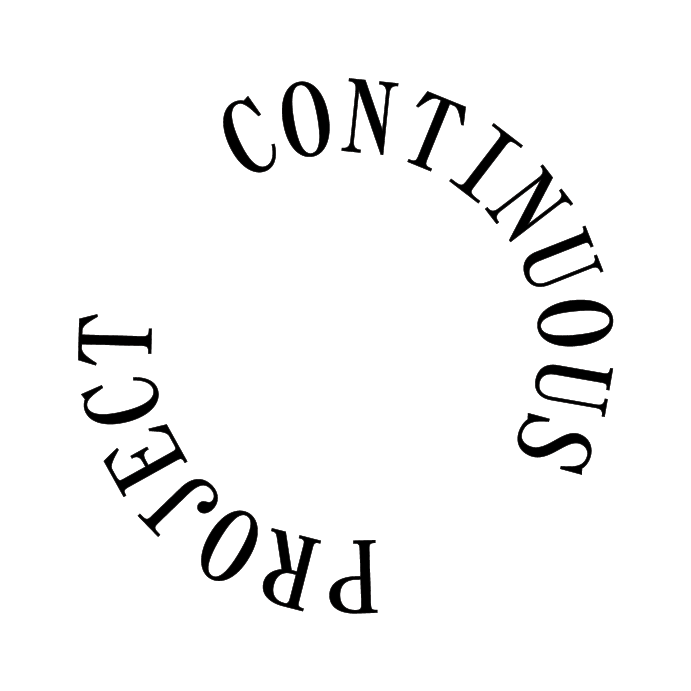Continuous Project Altered Quarterly | March 2023
Welcome, Spring!
The vernal equinox and the new moon are harmonizing today. In recent years, I’ve come to organize my life in accord with the seasons more and more. When I think of my childhood, my memories include being connected to seasons. Not that I thought about it then: I just experienced the world according to my nature. I was a child, after all. Growing up and acquiring worldly concerns, my connection to seasonal rhythms disintegrated. Education and ambitions and jobs and worries all distracted me from attending to nature, let alone my nature.
In my late 30s (I’m going to be 50 this year!), I started taking long walks, often alone, in the mountains. Walking in the wilderness wound up connecting me to both nature and my nature in ways I didn’t expect or even know I was seeking, and which continue to unfold. Becoming reacquainted with my nature helped me navigate back to a way of life that I hadn’t noticed I’d lost.
Last year, I committed to writing a newsletter every month. It was a lot to manage along with all of my other responsibilities, so I decided on a quarterly for 2023. When I wrote the monthly newsletter, I chose the third Tuesday of the month as my issue date because the equinoxes coincide with those days of the year. I like that, as a quarterly missive, the newsletter is also now seasonal.
Some people say we don’t have seasons in southern California (though this year might change folks' minds.... ), but I’m not one of them. Seasons aren’t just about weather, and we experience nuanced and multi-faceted seasons no matter what climate we live in or what the weather happens to do in a given year. In Dear CP this quarter, I answer a reader’s question about how to relate to and manage time more effectively. My response gets pretty granular, so I’d like to take a wider view here and suggest that managing time isn’t only about how we spend our precious hours and days and weeks but also about noticing and acknowledging the many seasons we experience in life, and perhaps even organizing our lives in accord with them more and more.
Dear CP,
TIME. Time is suddenly moving faster than I ever remember experiencing it, and it’s making me feel overwhelmed and out of control. Is there a way that I can relate to time or manage my time that would help me feel more grounded and effective in my life?
I can relate. And from what I’m hearing from my clients and students—as well as friends and family—so can lots of others. My first recommendation is to slow down. Read on...
Ideas & Resources
for Art Workers
I recently finished up teaching a 2-day workshop for the graduating MFAs at UCLA. In the feedback survey, I asked if there were topics I didn’t cover that they wished I’d had. More than one person mentioned pricing artwork, and I realized that this was a huge oversight on my part. When I started to think about it more deeply, though, I realized I’m not sure how I would talk about artwork pricing in the workshop setting and what I would actually teach students about pricing their artwork. Between my museum and gallery roles and my private consulting work, I’ve been part of many, many, many conversations about artwork prices, and yet I’m always somewhat surprised by how amorphous these conversations are. When I talk with clients about pricing, our conversations are filled with caveats and “if, then”s and conditions and exceptions. The subject can be pretty complicated and messy, which is OK—I’ve totally got time for complicated and messy—but complicated and messy can be tough to distill into useful information to share in a workshop setting.
I had a detailed conversation with an established artist a couple of years ago about their pricing structure, and it was fascinating. I realized this was the only artist I’d ever spoken to who had a clear pricing philosophy and shared it with me, which underscored two ideas for me: First, we don’t actually talk about money in the art world, even though we’re also kind of always talking about money; and second, many artists rely on the galleries that represent them to set the prices of their work.
Anyway, I’m writing about all of this here because I’d like to ask: In addition to my students, are there other folks out there who’d like to learn more about pricing artwork? I’m pretty sure that I do, so if there’s interest, I’ll consider putting some kind of resource together where we get into the weeds on artwork pricing. In the meantime, I’m sharing three articles from the Ideas & Resources Doc on the topic of pricing. None of these articles offer a formula. I’ve heard people talk about artwork pricing formulae, but I’ve never seen one that is effective across mediums and at all levels of the market. Also, these articles are not limited to artwork pricing; instead, these are meant to get our collective mental wheels turning about prices, value, worth more generally; subjects that are often so confounding that they can give rise to stasis, avoidance, fear, and all kinds of other counterproductive states. Let’s work together to find a way through this. If you have ideas to share about artwork pricing, I’d love to hear them.
In the meantime, here are the articles:
Ask the experts: I’m just starting out as an artist. How much should I charge for my art? by Francesca Gavin
How to price your artwork by Nina Berman
Sell value, not time; how to think about your prices by Paco DeLeon
